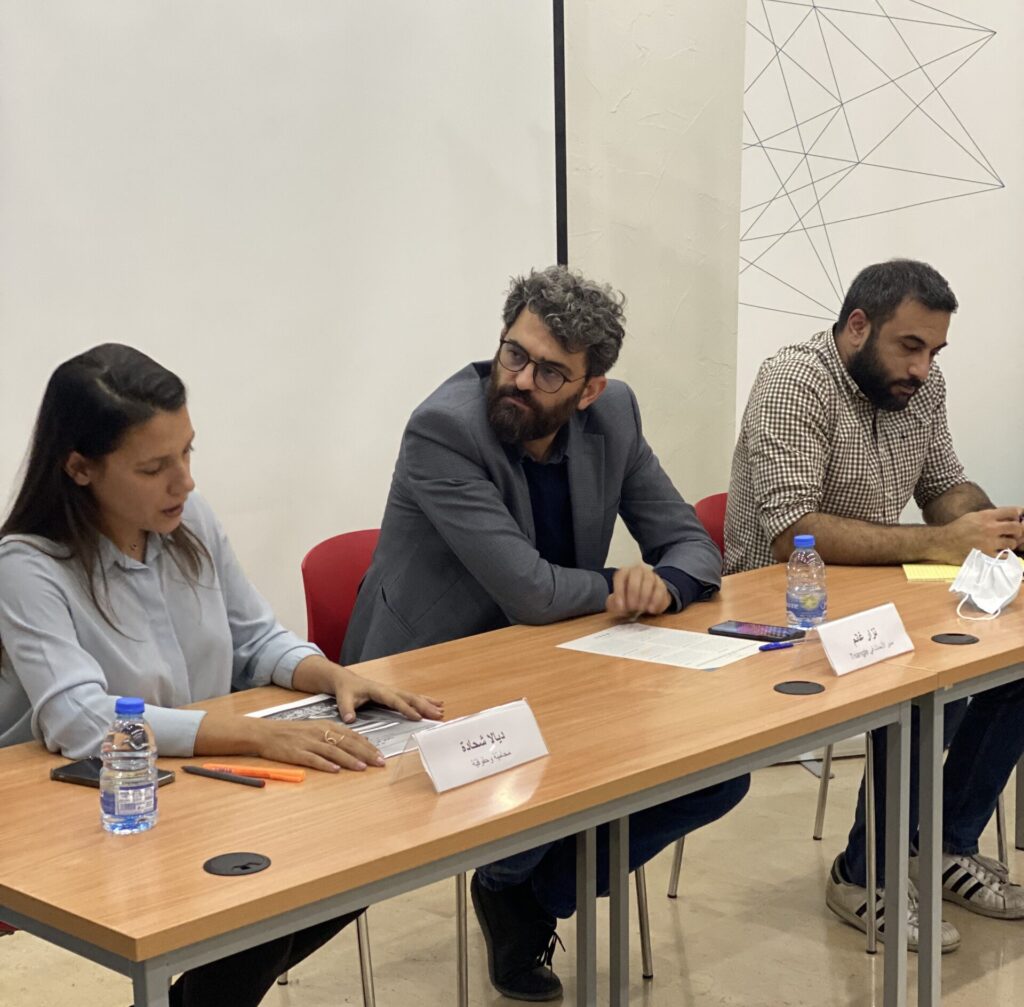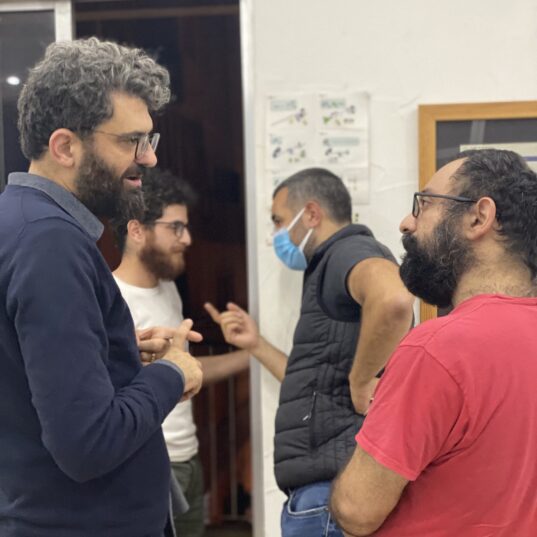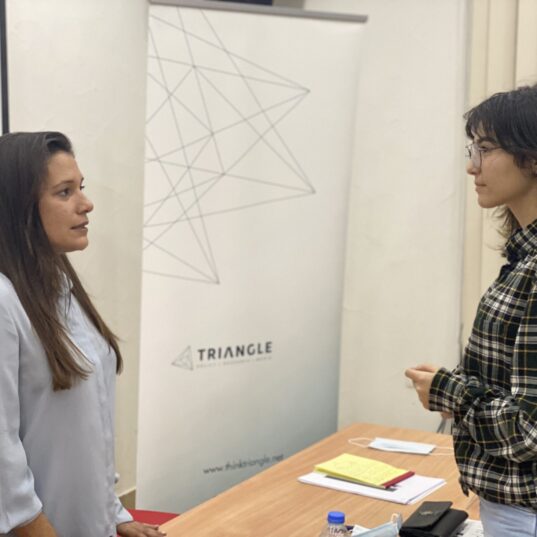Triangle Hosts Seminar on Accountability for Lebanon’s Financial Crisis
On Friday, 19 November 2021, Triangle held a public seminar at the office of SMEX, a digital rights NGO, entitled “Pressure Points: Can Foreign Pressure Finally Bring Lebanon’s Financial Elites to the Table?”
The event explained how Lebanon’s politico-banking class has tried to avoid responsibility for the country’s unprecedented economic crisis. The discussion also explored options for Lebanese to recover their savings overseas. Nizar Ghanem, Triangle’s director of research, moderated a panel featuring human rights lawyer Diala Chehade and independent financial analyst Ali Noureddine.
The seminar drew inspiration from two of Triangle’s recent policy papers: “Driving Disaster: Lebanon’s Shadow Financial Plan” and “See You In Court: Foreign Legal Pressure Can Corner Lebanon’s Elites.”
Ali Noureddine, who co-wrote “Driving Disaster,” set out the origins of the banking sector’s collapse. Noureddine indicated that the Banque du Liban, the Lebanese state, and domestic commercial banks had precipitated the crisis through various forms of misconduct, most notably through several financial engineering schemes.
Far from accepting responsibility, these same actors have since conspired to develop a “shadow financial plan,” which would shift the banking sector’s losses largely onto small-to-medium depositors.

Chehade then moved the discussion into a prospective direction: what can Lebanon’s everyday depositors do about this situation? Her remarks responded to the current plight of Lebanese bank customers facing an unlawful capital controls regime, which is the central topic of Triangle’s paper “See You in Court.”
Most depositors have bleak prospects in Lebanon for retrieving their savings, given that the government and judiciary have typically sided with the nation’s banking sector and favored elite clients. Depositors can, however, generate foreign pressure against Lebanese politico-banking elites, both via legal and diplomatic channels, with a view to forcing them towards negotiating a fair allocation of financial losses.
For media inquiries:
[email protected]
For more info:
Triangle’s paper on Lebanon’s shadow financial plan is available here.
Triangle’s paper on recovering Lebanese depositors’ assets is available here.

